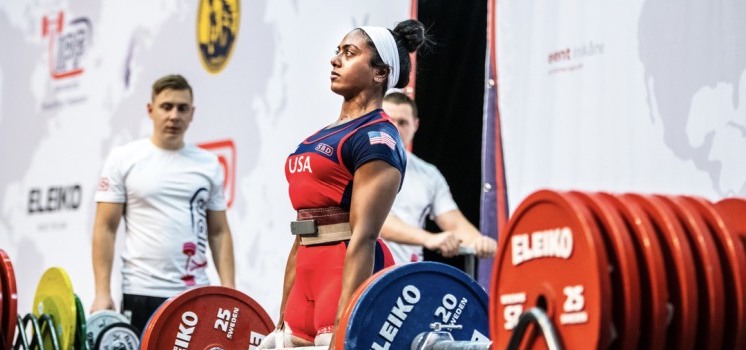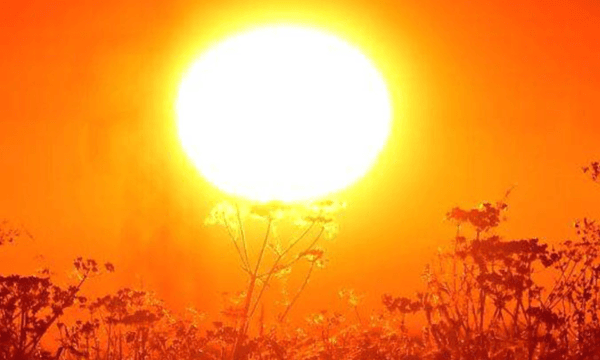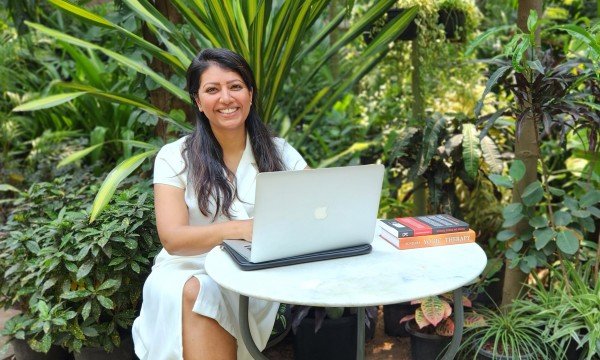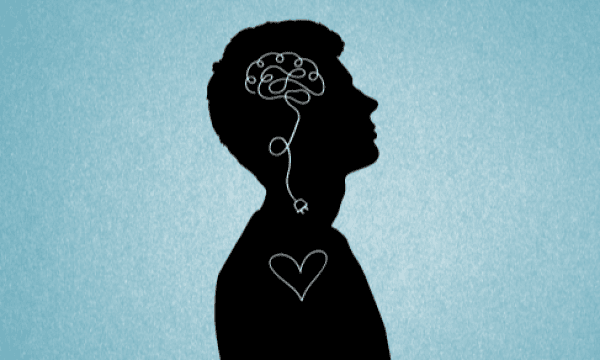
___
***Are you or someone you know in the global Tamil community doing great things? We'd love to feature them: FILL OUT THIS FORM ***
Network & collaborate with Tamil Changemakers from around the world. Request to join our private LinkedIn community here.
___
How did you think your childhood or your formative teenage years play a part in you developing a passion for strength training?
Growing up I struggled with my weight; I was ridiculed at times and always felt like I needed to be thinner. For most of my childhood into teenage years, I did Bharatanatyam and Bollywood dancing. I took a break in high school one year to focus on my studies and ended up gaining weight. After feeling frustrated with myself, I decided to change my lifestyle and started running. After a few months, I wanted to join a gym. I had no experience with weights but started exploring all the equipment. I used to go on bodybuilding.com to research different exercises and how to structure my workouts. From there I became addicted to working out and felt powerful when I lifted weights.
How did you make the transition from strength training on a more casual level to specializing in powerlifting?
I began going to the gym during the second half of my senior year of high school. I was so passionate about working out and wanted to find like-minded individuals as I began college at Georgia Tech. After doing some research, I discovered the Georgia Tech Barbell Club—a sports organization for fitness enthusiasts and lifters. When I joined the club there was a mentorship program I felt I could benefit from. By then I had slowly made my way to using free weights and the barbell. On the sign-up form for the program, there was a question that asked what strength sports I was interested in (powerlifting, Olympic weightlifting, bodybuilding, CrossFit, strongman/strongwomen). I had no experience with any of them but was squatting and deadlifting (baby weights) at the time so figured that was most closely aligned to powerlifting.
After my first lifting session with my mentor, he saw my potential to become a powerlifter. Initially, I was hesitant but after seeing my own strength, I was driven to go further. Mentally and physically I saw changes, and I was drawn into the sport chasing PRs and hitting heavy lifts. I think I always was competitive growing up but wasn't always encouraged to take my hobbies seriously. So when I discovered something I was really good at and was surrounded by people who encouraged me to explore my talents, it set a fire inside of me.

What kind of major injuries did you have along your journey of powerlifting? Have any of those injuries made you consider stopping powerlifting?
I’ve unfortunately had a handful of injuries. I don’t state this to scare people away from lifting. Part of it is when you are doing anything at this level of intensity you are bound to get hurt. The other part is that when I personally got into powerlifting there wasn’t a huge emphasis to train your core and glutes enough. There were many people, including me, who experienced back injuries because of this. Even though these injuries caused low points during my journey they were definitely eye openers to adjust my training and be more cognizant of how my body feels rather than pushing myself through uncomfortable workouts.
Most recently I had a torn hip labrum. This was due to an irregular shape on my femur head and lifting expedited the tear. These don’t heal and one solution is to get surgery. Out of all my injuries, this was definitely the most exhaustive. Initially I went through an identity loss because I had no idea if I could continue lifting. I second guessed myself for getting into powerlifting in the first place. After months of putting it off, I had surgery in April last year to repair the tear and have recovered well. Luckily right after my surgery I connected with another lifter who had similar issues/surgeries. She was able to get me in the right mindset to recognize I couldn’t have prevented my tear and it didn’t mean I had to stop lifting.
Since my recovery I began Olympic weightlifting. It’s been a little over a year since my surgery and my squats nowadays look like I never took a break.
What is the World Record that you hold along with the American records that you hold?
In 2019, I broke the Junior (20-23) 63 kg squat world record with 165.5 kg/364 lbs. I’ve also held the 63 kg American records for Teen 3 (18-19) total (combination of all 3 lifts), Junior squat, Collegiate squat, and Collegiate total.
How do you make money as a powerlifter? Is there prize money and/or sponsorship money when you participate in competitions?
Elite-level lifters are able to make money through sponsorships or through winning prize money at competitions. Strength sports have definitely grown over the past few years for this to be more accessible to lifters but they’re still niche sports and very few people are able to make it their sole profession.
_____________________________
Related Articles:
- The Tamil Creator Podcast (EP #75): Apinayah Arul – Starting Varman’s Smile Foundation After Losing Her Younger Brother To Suicide
- The Tamil Creator Podcast (EP #74): Sibi Selvanathan - Writing & Publishing An Amazon Top 5 Epic Fantasy Book In 18 Months During The Pandemic
- The Tamil Creator Podcast (EP #73): Tia Bhuva - Founder Of Successful E-Commerce Brand (TiaBhuva.com) & Creator Of The "Saree Silhouette"
- The Tamil Creator Podcast (EP #72): Bhi Bhiman - St. Louis Native & Musician On His Journey Including New Album "I'll Sleep When I'm Famous"
- The Tamil Creator Podcast (EP #71): Tanya Selvaratnam - Emmy-Nominated Producer, Writer, Abuse Survivor & Social Justice Champion
- The Tamil Creator Podcast (EP #70): Prakash Chandran - Co-Founder & CEO of Xano, Fastest No Code Backend Development Platform
- The Tamil Creator Podcast (EP #69): Apiramy Jeyarajah - Creating & Embracing Change As The Head of UK Wholesale At Aviva Investors
- The Tamil Creator Podcast (EP #68): Tharshan Rajendiram - Co-Creator Of The "Basement Reels" YouTube Channel (80,000+ Subscribers)
- The Tamil Creator Podcast (EP #67): Rathika Sitsabaiesan - From Politician (Canada's 1st Tamil MP) to Professor
- "These Tamil Entrepreneurs Share How They Grew Their Side Hustles"
_____________________________
What made you start “South Asian Strength”?
For some background, South Asian Strength (SAS) is a platform dedicated to showcasing a wide range of South Asian fitness enthusiasts and athletes, from novice lifters to individuals competing in strength sports (bodybuilding, CrossFit, strongman, weightlifting and powerlifting). The purpose of SAS is to educate the South Asian community on fitness and strength sports, connect those of us who are already in these spaces, and show people outside of our community that we exist.
Going back 7 years to when I first started powerlifting at 18 – I was definitely the odd one out. Here I was an Indian woman picking up heavy weights. No one on social media I could look up to, no one in my gym who looked like me, and parents who had never even heard of powerlifting. It was a struggle to figure out how I fit into my community and the fitness world. South Asian communities tell us, especially women, not to have big muscles. We are told not to lift so heavy and are questioned why we spend so much time in the gym.
Now going back 3 years to the summer of 2019, I had just competed at an international powerlifting competition. Surprisingly there were 2 other South Asian women who competed in the same session (@vrindasubhash @karenjeet_bains). I have competed in 5 national-level competitions in the US and have never had that happen. It was an awesome feeling to know that there were 3 of us (and all women) representing the US and UK. Unfortunately, there weren’t many other South Asian lifters aside from us. I remember leaving having all these ideas of what if there was a community for us, and if that would help increase awareness and diversity in strength sports.
Fast forward to the present day. There are more South Asians in fitness and wellness. But there still is a lack of representation and knowledge that creates this cycle that keeps South Asians from lifting weights. If the few of us who do lift come together we can break that cycle.
Although it’s a small community right now, I know this is one step forward to educating and encouraging South Asians to pick up weights. For those that already lift, I know seeing others lift heavy and hit PRs will be invigorating. I hope this page will be inspirational and resourceful for us and future generations.
What are some common mistakes you see people make around training?
Starting off too extreme. Fitness and wellness in general should be sustainable—part of your lifestyle. Participating in a strength sport will take more time and dedication, but for longevity as an athlete balance is key. I often see people say they’re going to workout every day, then other obligations pop up, and a few weeks later they completely stop working out. I recommend starting slow, building your routines, assessing how they align with your lifestyle and goals, and then making changes.
What are a few tips you would give people to live a healthy life?
I know I’m in the space of strength sports and lifting, but I always encourage people to just find something they enjoy to be active. Lifting weights is not for everyone, although there are many health benefits so I still encourage doing it at least 1-2x a week. Outside of weights there’s so many ways to stay active and get exercise from team sports to outdoor activities. The more fun you make it the more likely you’ll stick with it.
How have your friends & family supported you along your personal health journey & then becoming a serious powerlifter? Did you have anybody question your decisions?
Initially, my family was hesitant when I began powerlifting. They were unfamiliar with the sport and wanted me to focus on academics (I was at Georgia Tech to get an engineering degree after all). Eventually, they saw how dedicated I was and once I started competing (winning too), they came around. My parents have been to most of my competitions and many family members now proudly recognize my achievements.
What kind of things do you do to improve your skills & knowledge around strength training & powerlifting?
I’ll admit I’m more on the athlete side versus a subject matter expert but I have years of lived experience and have taken courses. This past year I got my NASM Personal Training certificate and in May of this year I got my USAW Level 1 certificate.
What do you do outside of work for fun?
I love exploring new neighborhoods, trying local restaurants and coffee shops. I often just spend time on Google maps trying to find new spots to check out. I also like to travel and spend time with friends and family. Outside of lifting I like to hike—I always wished I was someone who could do day trips but usually 3-4 miles is my limit.
What is an insecurity you have?
Growing up, I had a lot of insecurities about my body size and shape. Lifting heavy has helped me see past many of these insecurities, and appreciate my body for how powerful it is versus focusing on how I look. It also helped that curves became more celebrated in the past decade. Unfortunately, there are still times I will look in the mirror and not like what I see. I definitely have some body dysmorphia, and sometimes I ask myself why my body looks the way it does when I put so much time and energy into working out. It’s a work in progress but whenever I think about my competitions and comebacks from injuries, I feel grateful for the body I have.
In terms of your personal legacy, in a few sentences, describe how you want to be remembered by your family and friends?
I’ve made my mark as a powerlifter. Now I want to compete internationally (and win) as an Olympic weightlifter. I also want to continue growing South Asian Strength and encourage more people to get involved with fitness and wellness. I hope both of these aspects are what I’m remembered by—my lifting career and impact on our South Asian community.
What is a new belief, behaviour or habit that has most improved your life?
I recently started meditating. I can’t do it for long but I’ve stuck to 3 minutes a day for the past year. It’s helped with being present, reducing anxiety, and maintaining focus. Before the pandemic, I was always on the go and had a bad habit of multi-tasking. The pandemic slowing things down along with meditating has allowed me to incorporate habits throughout the day I can use to clear and center my mind. I find 3 mins makes is short enough so that it’s not daunting or cumbersome. Also, there are many guided meditations on YouTube and Spotify specifically for short, 3-5 minute sessions.
How has the US Tamil community impacted you both personally and professionally?
Growing up, I was connected to a Tamil community in New Jersey, all of whom I viewed as family but not much beyond that. When I went to Georgia Tech, I took more pride in being South Asian due to the people I was surrounded by and on-campus organizations. It wasn’t until recently, through social media and personal research, that I started learning more specifically about Tamil culture and history. Social media has really opened my eye to all the amazing accomplishments Tamil people have achieved around the world.
I’ve also been able to connect to a group of Tamil women in fitness and wellness this past year which has been amazing—we all have an unspoken understanding and are able to uplift each other in a space where there’s barely anyone who looks like us. Seeing us thrive makes me proud and reminds me of the strength I carry (not just physically) as a Tamil woman.
What is your favourite Tamil food (meal or dessert)?
Puli sadam (tamarind rice), especially from temples, and kesari for dessert.
**Looking to create your love story? Join the other couples who have dated and married through myTamilDate.com!**
"myTamilDate Success Story: It Was Love At First Sight For Madhu & Niya"
"myTamilDate Love Story: Jenani & Nav Found Each Other At The Right Time And Right Place In Life"
"myTamilDate.com Love Story: Tharshi & Ravi Found Love During Lockdown"
"How France Met Canada: A MyTamilDate.com Love Story"
***CLICK HERE to listen to us on Spotify!***
Related Articles:
- Tamil Innovators: Thanuska Subramaniam on Finding Success in the Creator Economy
- Tamil Innovators: Prajeeth Balasubramaniam Discusses Startups & Investing in Sri Lanka
- Tamil Innovators Spotlight: Nivatha Balendra On Surviving Cancer & Building a CleanTech Startup
- Separated From Family During Sri Lanka's Civil War, Ganesh Thava Overcomes Childhood Adversities To Find Success As Actor, Writer & Director
- Singaporean-Born, Canadian-Raised, Decolonial Racial Equity Educator Channdika Thayver Delivers Powerful TEDx Talk On Racial Equity In The Workplace
- "Tamil Innovators Spotlight: Theban Ganesh Discusses Building a Web3 Company, Improving Healthcare Through Blockchain, Successful Exits"
- "Karthy Subramaniam Co-founded Fast Growing Sauce Company LITS as a Tribute to a Childhood Friend"
- "Elite Athlete, Coach, Future Chiropractor & Entrepreneur Abirami Shanmugaratnam Is Making Waves In The Athletic Performance Industry"
- "Toronto's OG Food Writer Suresh Doss Is Using His Reach And Voice To Help Engineer A Comeback For Beleaguered Restaurant Industry"
- "Ballet And Kung Fu Trained Australian Actress & Writer Rubi Balasingam Is Promoting Tamil Voices In Aussie TV And Film"
- "Yathusha Kulenthiran's Marketplace For Environmentally Sustainable Palmyra Products Empowers Female Artisans In Sri Lanka"
- "Australian-Tamil Entrepreneur Sujan Selven Is Creating Economic Opportunities For Remote Villages In Northeast Sri Lanka Using Upcycled Devices & Improved Connectivity"
- "Crypto Tinhorn & Former Journalist Anand Venkateswaran Talks About Buying A $69M Digital Art Piece, Collecting Stories & Catalyzing Change"
- "Tamil Innovators Spotlight: Abarna Raj, CEO of Australian Social Startup Palmera, Is Tackling World Poverty"
- "Tamil Innovators Spotlight: Tea Drops CEO & Founder, Sashee Chandran"
- "Tamil Innovators Spotlight: Knowledgehook's CEO, Travis Ratnam"
- "Danny Sriskandarajah's Journey From Rural Sri Lanka to CEO of Oxfam Great Britain"
- "The NBA Bubble: Dr. Priya Sampathkumar Helped Make It Happen"
- "These Tamil Founders Behind Agritech Startup Dunya Habitats Want To Alleviate Food Security Globally"
- "Angel Investor Jay Vasantharajah On Building His Portfolio One Day At A Time"
- "Breaking Into Hollywood: Meet Tamil-Canadian Actor Vas Saranga"
- "Meet Rebecca Dharmapalan - Filmmaker, Legal Scholar, And Activist"

























